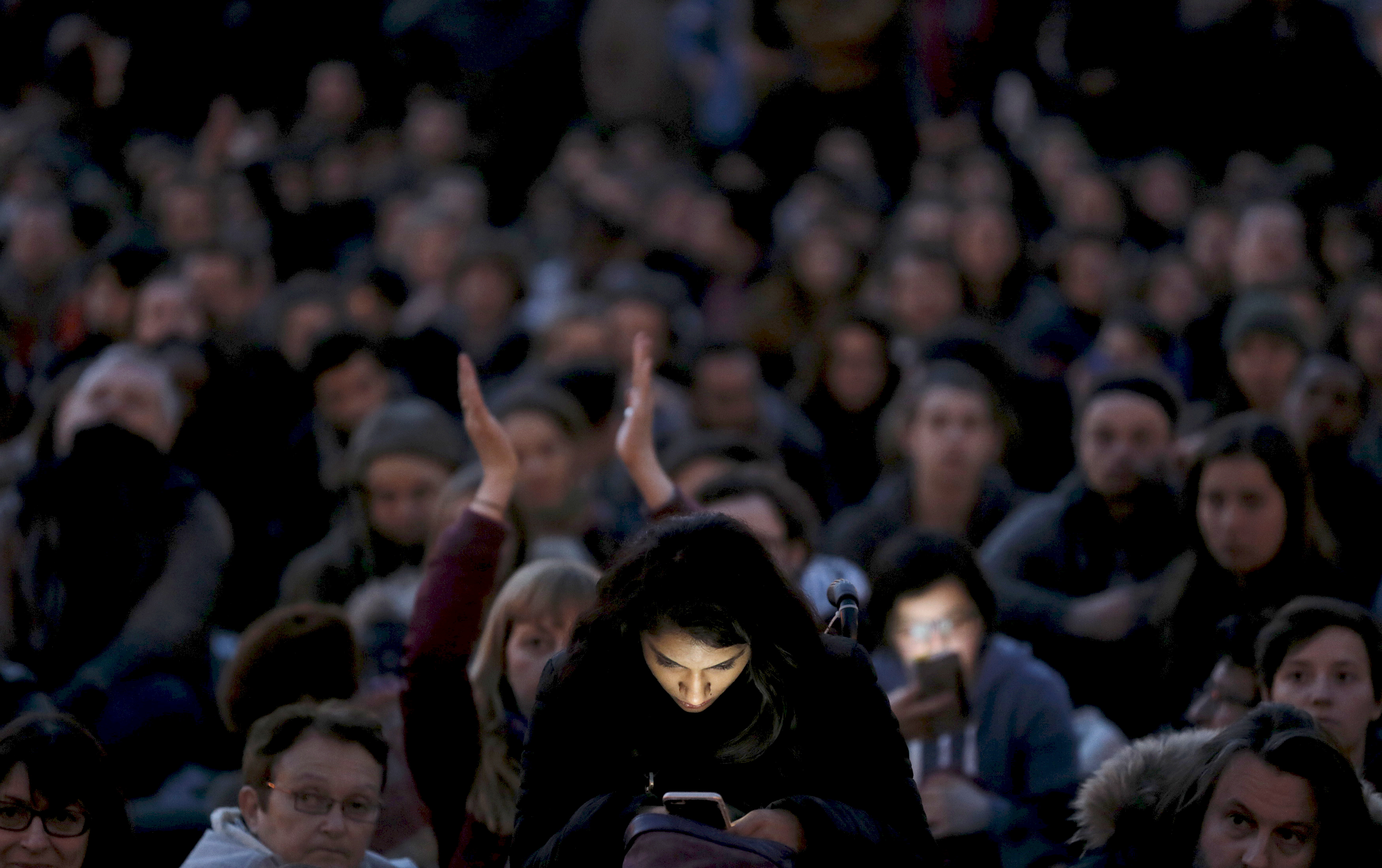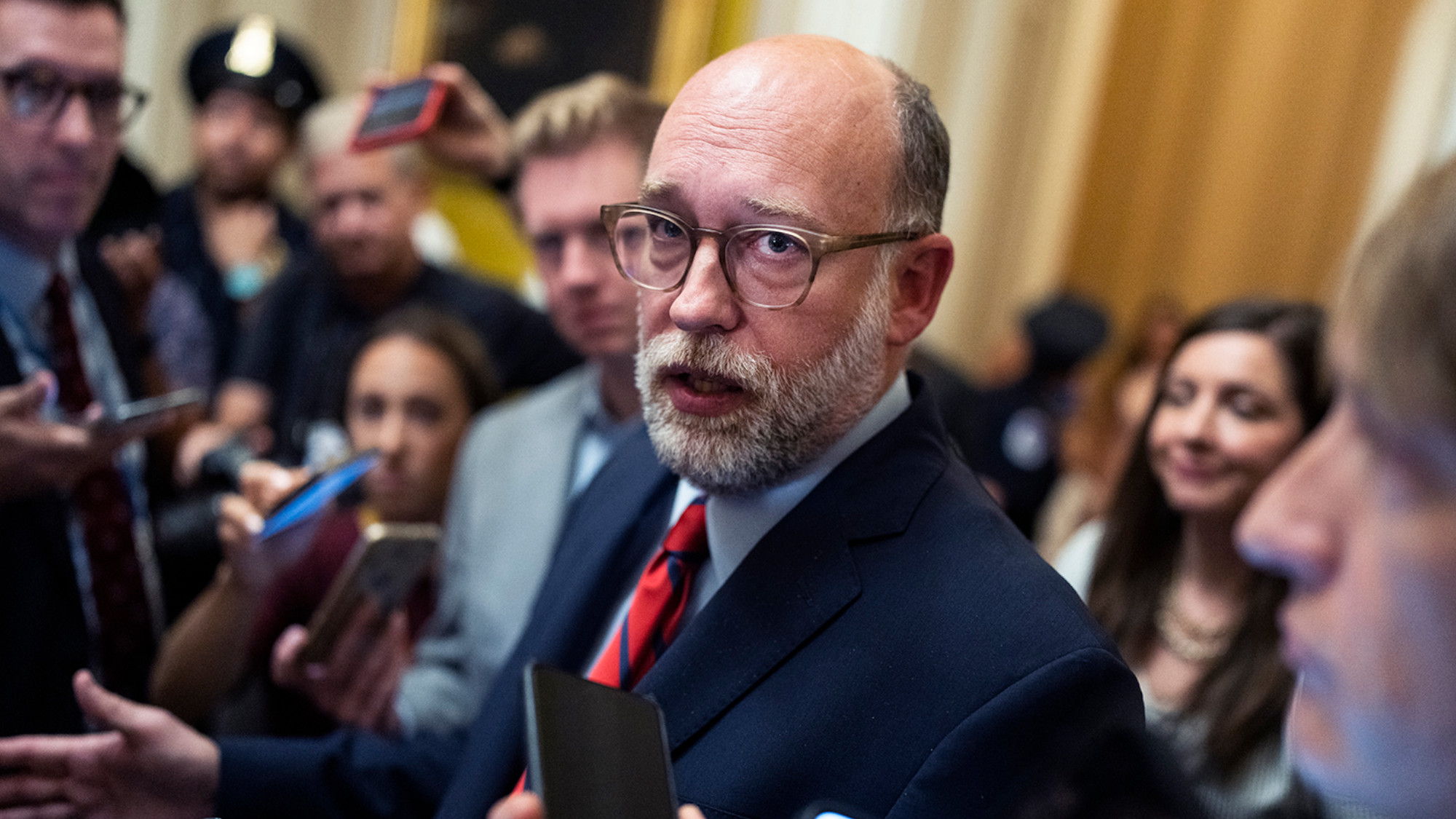The secret lives of screen-addicted teens
This is what it's like to be 13 years old and glued to a smartphone and laptop all day, measuring your worth in likes, comments, and notifications

She slides into the car, and even before she buckles her seat belt, her phone is alight in her hands. A 13-year-old girl after a day of eighth grade. She says hello. Her au pair asks, "Ready to go?"
She doesn't respond, her thumb on Instagram. A Barbara Walters meme is on the screen. She scrolls, and another meme appears. Then another meme, and she closes the app. She opens BuzzFeed. There's a story about Florida Gov. Rick Scott, which she scrolls past to get to a story about Janet Jackson, then "28 Things You'll Understand If You're Both British and American." She closes it. She opens Instagram. She opens the NBA app. She shuts the screen off. She turns it back on. She opens Spotify. Opens Fitbit. She has 7,427 steps. Opens Instagram again. Opens Snapchat. She watches a sparkly rainbow flow from her friend's mouth. She watches a YouTube star make pouty faces at the camera. She watches a tutorial on nail art. She feels the bump of the driveway and looks up.
They're home. Twelve minutes have passed.
Subscribe to The Week
Escape your echo chamber. Get the facts behind the news, plus analysis from multiple perspectives.

Sign up for The Week's Free Newsletters
From our morning news briefing to a weekly Good News Newsletter, get the best of The Week delivered directly to your inbox.
From our morning news briefing to a weekly Good News Newsletter, get the best of The Week delivered directly to your inbox.
Katherine Pommerening's iPhone is the place where all of her friends are always hanging out. So it's the place where she is, too. She's on it after it rings to wake her up in the mornings. She's on it at school, when she can sneak it. She's on it while her 8-year-old sister, Lila, is building crafts out of beads. She sets it down to play basketball, to skateboard, to watch PG-13 comedies, and sometimes to eat dinner, but when she picks it back up, she might have 64 unread messages.
Now she's on it in the living room of her big house in McLean, Virginia, while she explains what it's like to be a 13-year-old today. "Over 100 likes is good, for me. And comments. You just comment to make a joke or tag someone."
The best thing is the little notification box, which means someone liked, tagged, or followed her on Instagram. She has 604 followers. There are only 25 photos on her page, because she deletes most of what she posts. The ones that don't get enough likes, don't have good enough lighting, or don't show the coolest moments in her life must be deleted.
Somewhere, maybe at this very moment, neurologists are trying to figure out what all this screen time is doing to the still-forming brains of people Katherine's age, members of what's known as Generation Z. Educators are trying to teach them that not all answers are Google-able. Counselors are prying them out of internet addictions. Parents are trying to catch up by friending their kids on Facebook. (P.S. Facebook is obsolete.) Sociologists, advertisers, stock market analysts — everyone wants to know what happens when the generation born glued to screens has to look up and interact with the world.
A free daily email with the biggest news stories of the day – and the best features from TheWeek.com
Right now, Katherine is still looking down. "See this girl," she says, "she gets so many likes on her pictures because she's posted over nine pictures saying, 'Like all my pictures for a tbh, comment when done.' So everyone will like her pictures, and she'll just give them a simple tbh."
A tbh is a compliment. It stands for "to be heard" or "to be honest." "It kind of, almost, promotes you as a good person," she explains. "If someone says, 'tbh you're nice and pretty,' that kind of, like, validates you in the comments. Then people can look at it and say 'Oh, she's nice and pretty.'"
Tbh, Katherine is both nice and pretty. She has the cheeks of a middle schooler and the vocabulary of a high schooler. She has light brown eyes, which she only paints with makeup for dances, where there are boys from other schools. Her family is wealthier than most and has seen more sorrow. She is 5-foot-1 but will have a growth spurt soon, or so said her dad, Dave, in a very awkward talk he had with her about puberty even after she told him, "Please, don't."
School is where she thrives: She is beloved by her teachers, will soon star as young Simba in the eighth-grade performance of The Lion King musical, and gets straight A's. Her school doesn't offer a math course challenging enough for her, so she takes honors algebra online through Johns Hopkins University.
Now she's on her own page, checking the comments beneath a photo of her friend Aisha, which she posted for Aisha's birthday. "Happy birthday posts are a pretty big deal," she says. "It really shows who cares enough to put you on their page."
Her floor is a tangle of clothes, and her bed is a tangle of cords. One for her phone, one for an iPod, one for her school laptop, and one for the laptop that used to belong to her mom, Alicia.
A pink blanket with Alicia's name on it lies across her comforter. A black-and-white photo of her mom on her wedding day sits on her desk. In a frame on her nightstand, handprint art they made together one Mother's Day.
The breast cancer appeared right after Katherine was born. It went away, then came back when Katherine was in third grade. In fifth grade, Alicia and Dave bought Katherine a cellphone, in case things took a turn. She signed up for Snapchat and Instagram, Twitter and VSCO. She stopped inviting friends to the house, because her mom was there, sick.
Last year, on a cloudy Thursday in March, Alicia died. Katherine won't talk about it, today or any day. Not talking about it means she doesn't need to think about it, except when the house is quiet and the thinking just seeps in. She doesn't tell her friends how it feels. When she's asked about it, she crumples. Her shoulders hunch, her eyes well, but no tears fall on her cheeks. Please, she would say if she were reading this, go back to talking about my phone.
Lila can't find her tap shoes, Rachel the au pair is sick, the dogs are waiting for breakfast, and Katherine is heading straight to the garage. "Don't you think you should eat something?" her dad asks, rummaging through a cabinet. "A breakfast bar?"
Katherine's arms are crossed with her pastel pink phone case in her hand.
"I feel like you should eat something before —"
"I'm fine," she says.
Dave Pommerening wants to figure out how to get Katherine to use her phone less. One month, she ate up 18 gigabytes of data. Most large plans max out at 10. He intervened and capped her at 4 GB.
"I don't want to crimp it too much," he says. "That's something, from my perspective, I'm going to have to figure out, how to get my arms around that."
He says that a lot. He's a 56-year-old corporate lawyer who doesn't know how to upload photos to his Facebook page. When he was 13, he lived only 2 miles away. He didn't have a cellphone, of course, and home phones were reserved for adults. When he wanted to talk to his friends, he rode his bike to their houses. His parents expected him to play outside all day and be back by dinnertime.
Some of Katherine's very best friends have never been to her house, or she to theirs. To Dave, it seems like they rarely hang out, but he knows that to her, it seems like they're together all the time. He tries to watch what she sends them — pictures of their family skiing, pictures of their cat, Bo — but he's not sure what her friends, or whoever she follows, are sending back.
He checks the phone bill to see who she's called and how much she's been texting, but she barely calls anyone and chats mostly through Snapchat, where her messages disappear. Another dad recommended that Dave use parental controls to stop Katherine from using her phone at night. He put that in place, but it seemed like as soon as he did, there was some reason he needed to switch it off.
He finds Katherine waiting in the car with two backpacks, one for her books and one for her laptop. "What jacket are you going to wear?" he asks.
"I'm going to grab a sweater," she says. She heads back into the house, phone in hand, protecting it from prying eyes.
Even if her dad tried snooping around her apps, the true dramas of teenage-girl life are not written in the comments. Like how sometimes Katherine's friends will borrow her phone just to un-like all the Instagram photos of girls they don't like. Katherine can't go back to those girls' pages and re-like the photos because that would be stalking, which is forbidden.
Or how at the middle school dance, her friends got the phone numbers of 10 boys, but then they had to delete five of them because they were seventh-graders. And before she could add the boys on Snapchat, she realized she had to change her username because it was her childhood nickname and that was totally embarrassing.
Then, because she changed her username, her Snapchat score reverted to zero. The app awards about one point for every snap you send and receive. It's also totally embarrassing and stressful to have a low Snapchat score. So in one day, she sent enough snaps to earn 1,000 points. Snapchat is where flirting happens. She doesn't know anyone who has sent a naked picture to a boy, but she knows it happens with older girls, who know they have met the right guy.
Nothing her dad could find on her phone shows that as good as Katherine is at math, basketball, and singing, she wants to get better at her phone. To be one of the girls who knows what to post, how to caption it, when to like, what to comment.
She gets back in the car with a navy blue sweater. One small parenting win for Dave. He needs to figure out what Snapchat is about. And how to be a Washington lawyer and a single parent. And how to get them to eat breakfast and brush their hair and get to school on time.
He clicks on the car's satellite radio and changes the channel from 60s on 6 to Hits 1, the station he thinks Katherine and Lila like. It's playing Justin Bieber. He pulls out of the driveway and glances over at the passenger seat. Katherine is looking out the window, headphones on.
On the morning of her 14th birthday, Katherine wakes up to an alarm on her phone. It's 6:30 a.m. She rolls over and shuts it off in the dark.
Her grandparents, here to celebrate the end of her first year of teenagerhood, are sleeping in the guest room down the hall. She can hear the dogs shuffling across the hardwood downstairs, waiting to be fed.
Propping herself up on her peace-sign-covered pillow, she opens Instagram. Later, Lila will give her a Starbucks gift card. Her dad will bring doughnuts to her class. Her grandparents will take her to the Melting Pot for dinner. But first, her friends will decide whether to post pictures of Katherine for her birthday. Whether they like her enough to put a picture of her on their page. Those pictures, if they come, will get likes and maybe tbhs.
They should be posted in the morning, any minute now. She scrolls past a friend posing in a bikini on the beach. Then a picture posted by Kendall Jenner. A selfie with coffee. A basketball Vine. A selfie with a girl's tongue out. She scrolls, she waits. For that little notification box to appear.
Excerpted from an article that originally appeared in The Washington Post. Reprinted with permission.
-
 The Pentagon's missing missiles
The Pentagon's missing missilesFeature The U.S. military is low on weapons. Can it restock before a major conflict breaks out?
-
 Rescissions: Trump's push to control federal spending
Rescissions: Trump's push to control federal spendingFeature The GOP passed a bill to reduce funding for PBS, NPR and other public media stations
-
 The knives come out for Pam Bondi
The knives come out for Pam BondiIN THE SPOTLIGHT She wasn't Trump's first pick to lead the Justice Department. After months of scandals and setbacks, is the attorney general's MAGA shelf life winding down?